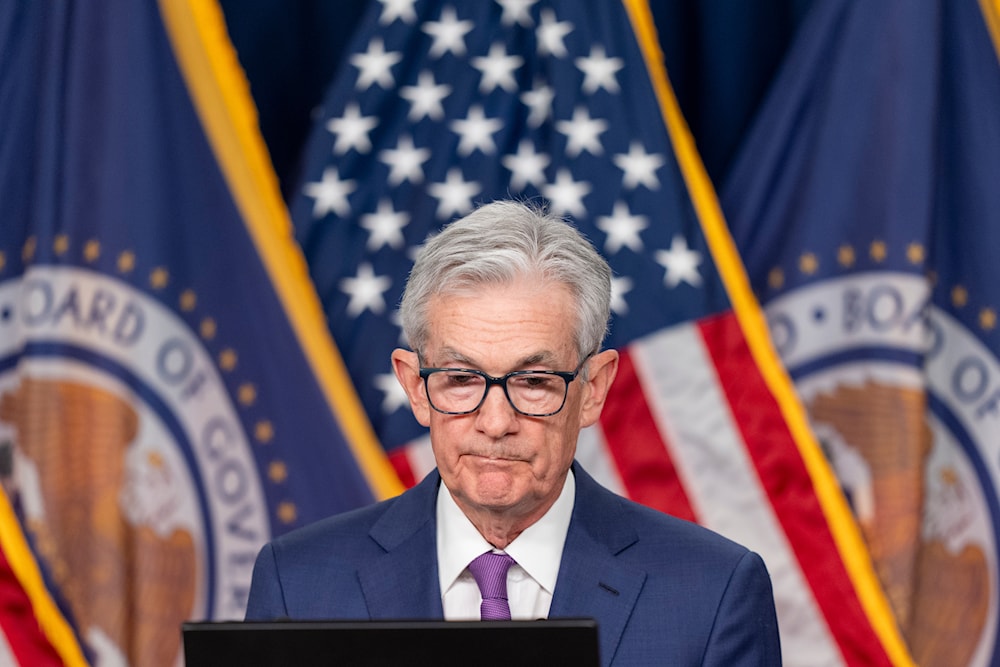US national debt 'unsustainable', no good news in near future
Fed Reserve chief Jeremy Powell confirms that a rate cut is not likely to occur at the next rate-setting FOMC meeting in March as "debt grows faster than the economy."
-

Federal Reserve Board Chair Jerome Powell speaks during a news conference about the Federal Reserve's monetary policy at the Federal Reserve, Wednesday, Jan. 31, 2024, in Washington. (AP)
Federal Reserve chief Jerome Powell stated that the US national debt was on an "unsustainable" path, currently standing at more than $34 trillion, according to US Treasury data.
In an interview aired Sunday with CBS' "60 Minutes" news program, Powell said, "In the long run... the US federal government's on an unsustainable fiscal path. And that just means that the debt is growing faster than the economy," while stressing that "it's probably time, or past time, to get back to an adult conversation among elected officials about getting the federal government back on a sustainable fiscal path."
This comes after the Federal Reserve voted last week to leave interest rates unchanged and said that "risks to achieving its employment and inflation goals are moving into better balance," eliminating possibilities of rate cuts.
"I do think it's pretty widely understood that it's time for us to get back to putting a priority on fiscal sustainability. And sooner's better than later."
Read more: National debt; American CEOs' biggest business threat for 2024
Powell continued to echo that stance, adding that a rate cut is not likely to occur at the next rate-setting Federal Open Market Committee (FOMC) meeting in March. "I think it's not likely that this committee will reach that level of confidence in time for the March meeting, which is in seven weeks."
Not better, but good enough to sustain?
Powell, responding to the question of conditions needed for a possible cut, said, "It doesn't need to be better than what we've seen, or even as good. It just needs to be good."
"The best we can do is to weigh the risk of moving too soon against the risk of moving too late and make that judgment in real-time. So that time is coming, I would say, based on what we expect," he added.
The benchmark interest rate is currently stable at its 23-year high, between 5.25 and 5.50 %.
Powell believes that inflation is expected to continue to slow down in the first half of 2024, and the interest rate target would then be reassessed in March.
"Nothing has happened in the meantime that would lead me to think that people would dramatically change their forecasts," he relayed to CBS.
The national debt in the US poses a problem that will spill over to other big economies relying on public borrowing to regulate inflation. Moreover, it leaves public services provided by the government, such as Medicare and Social Security, in an unknown grey area as the government could be faced with choices to prioritize certain services over others.
Several headwinds will keep borrowing costs higher for a longer duration in the US. One of them is continued war spending. The government will likely borrow another $100 billion from investors to aid Ukraine and "Israel".
This implies that more bonds will be issued to the market, increasing the supply of US debt, and bond yields will remain high.

 3 Min Read
3 Min Read








